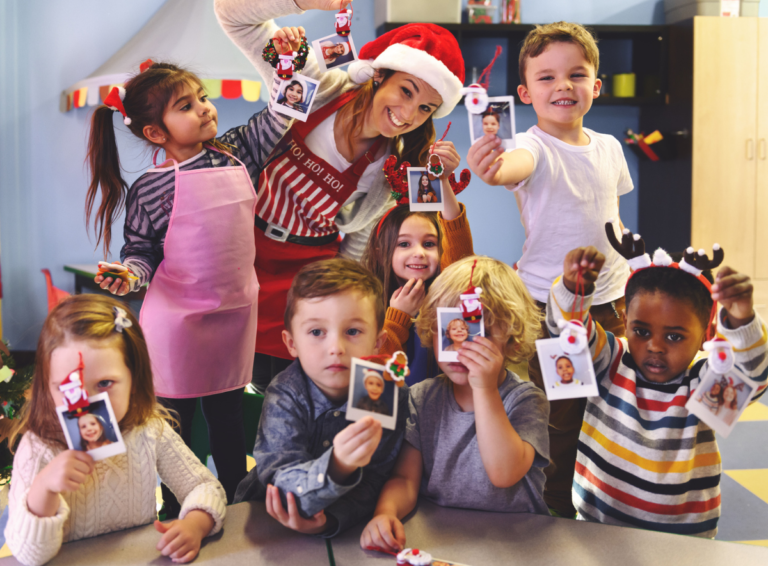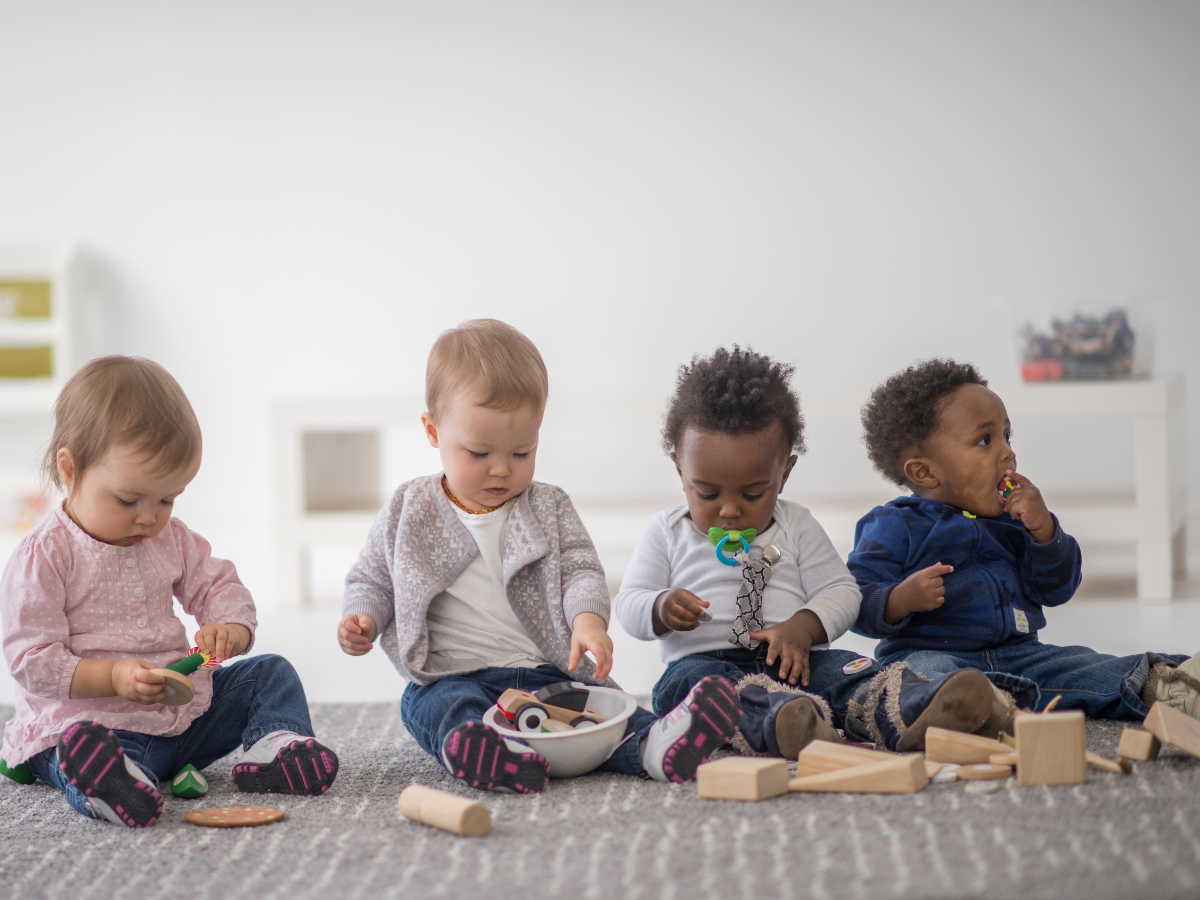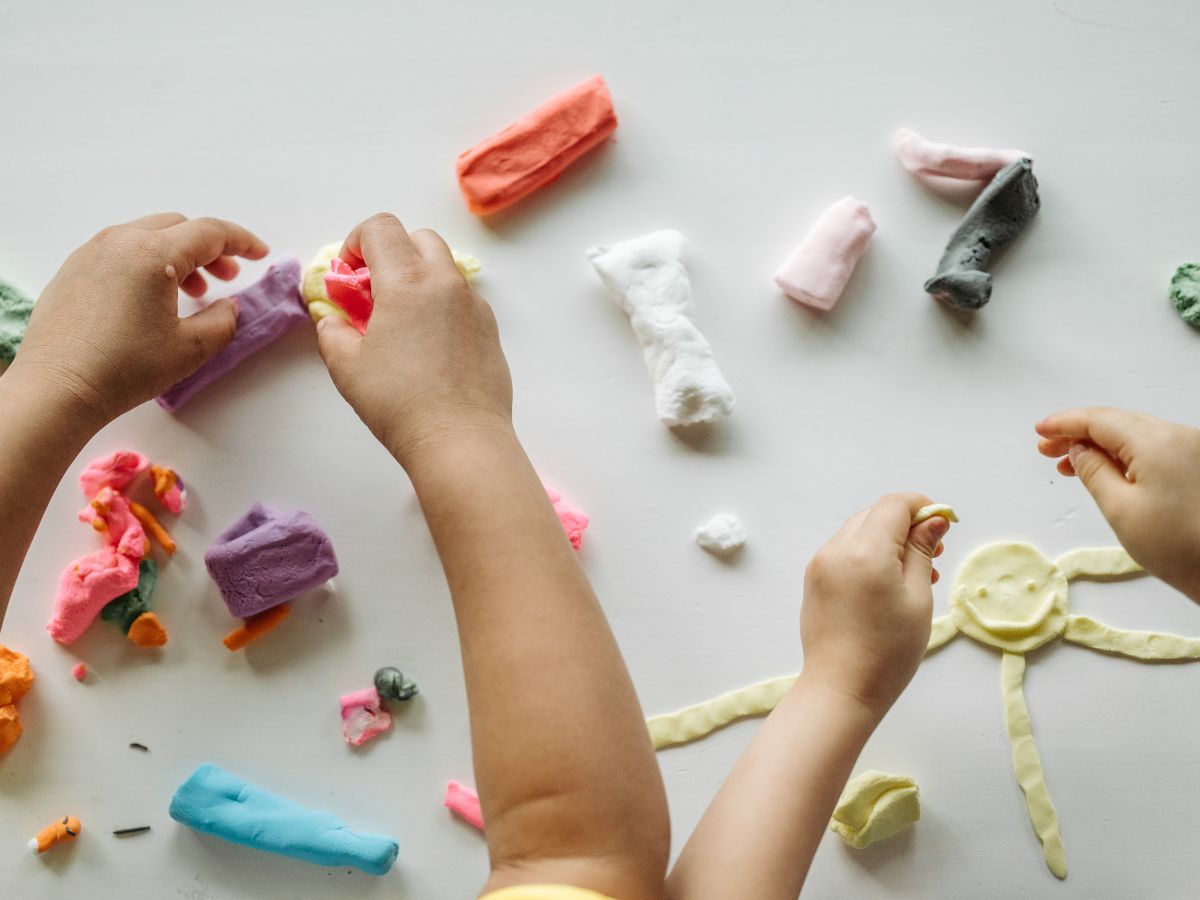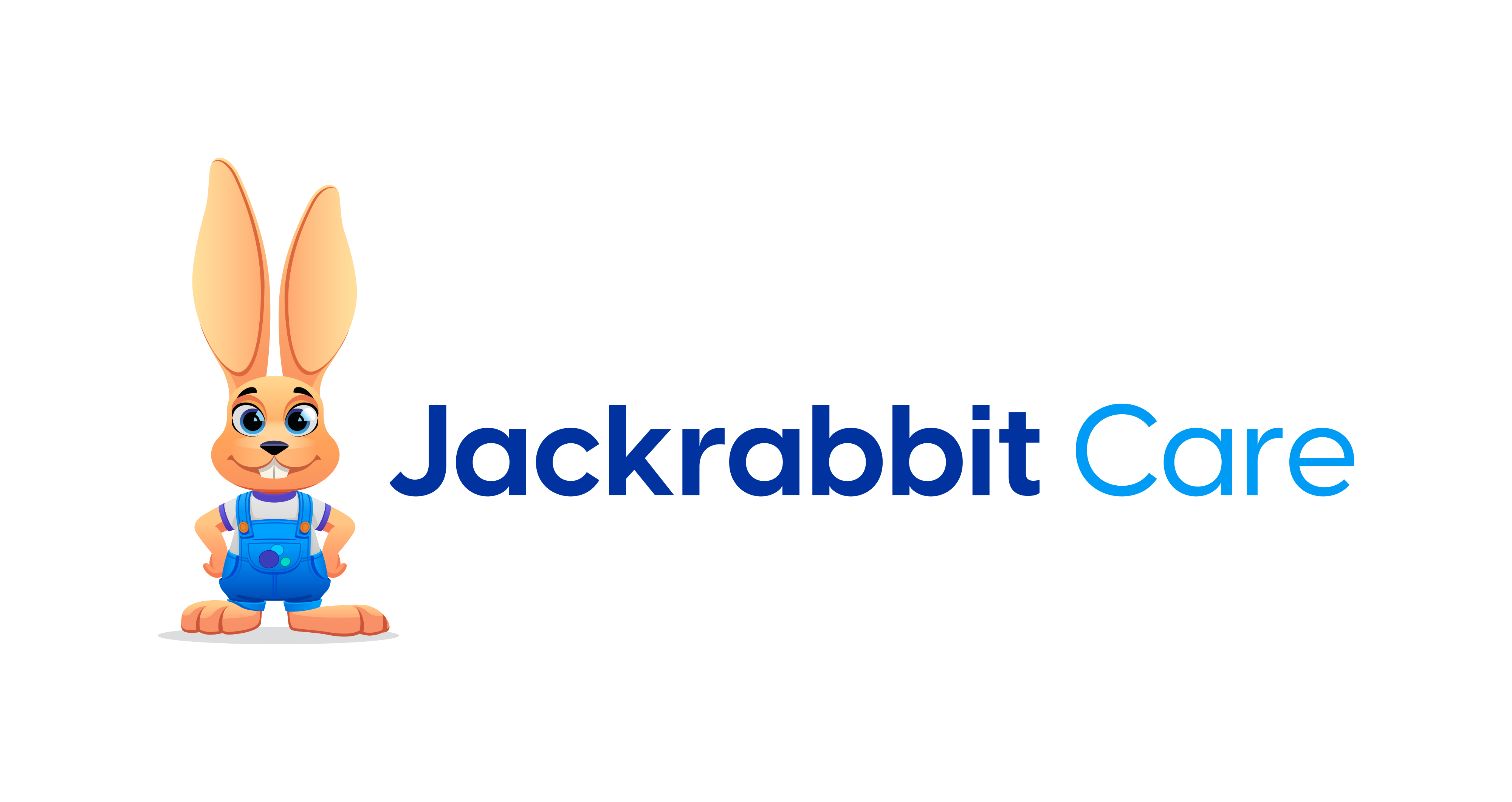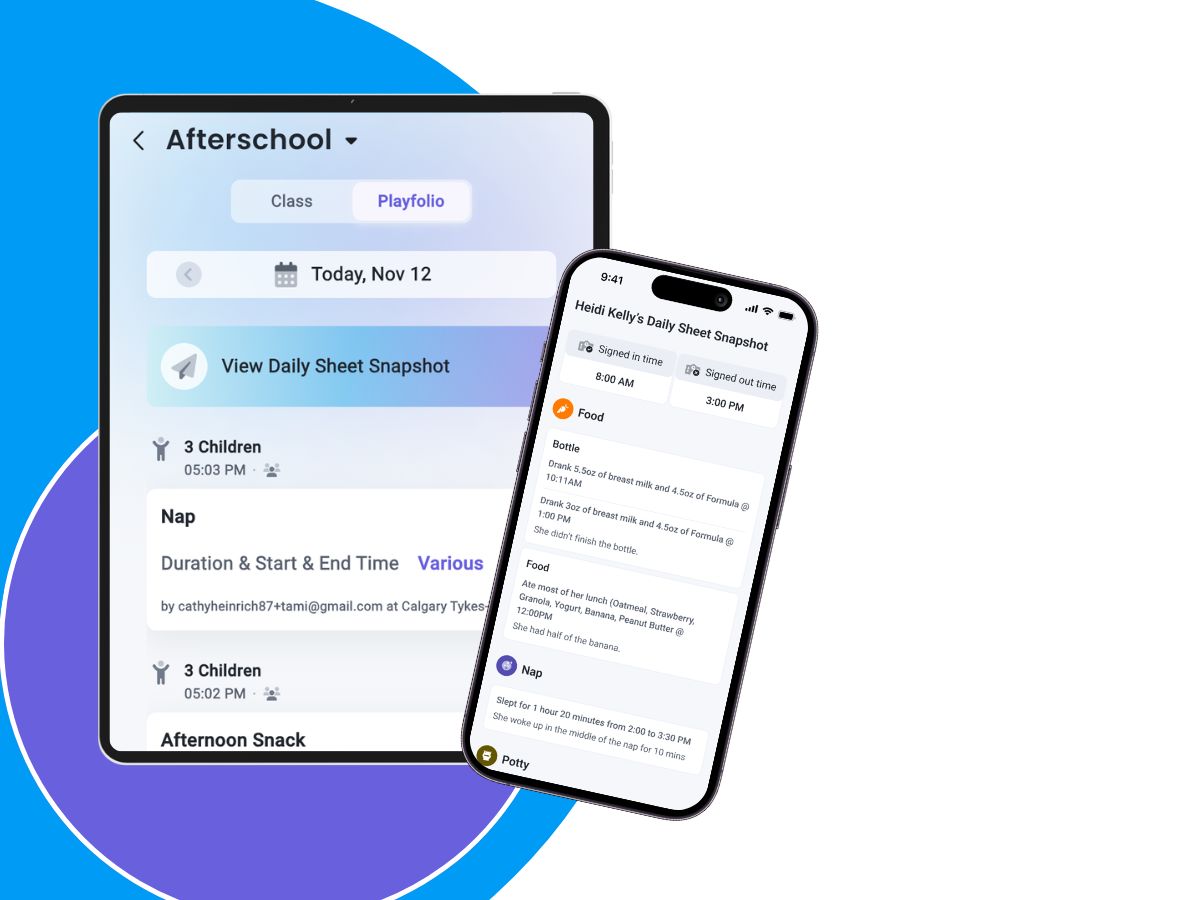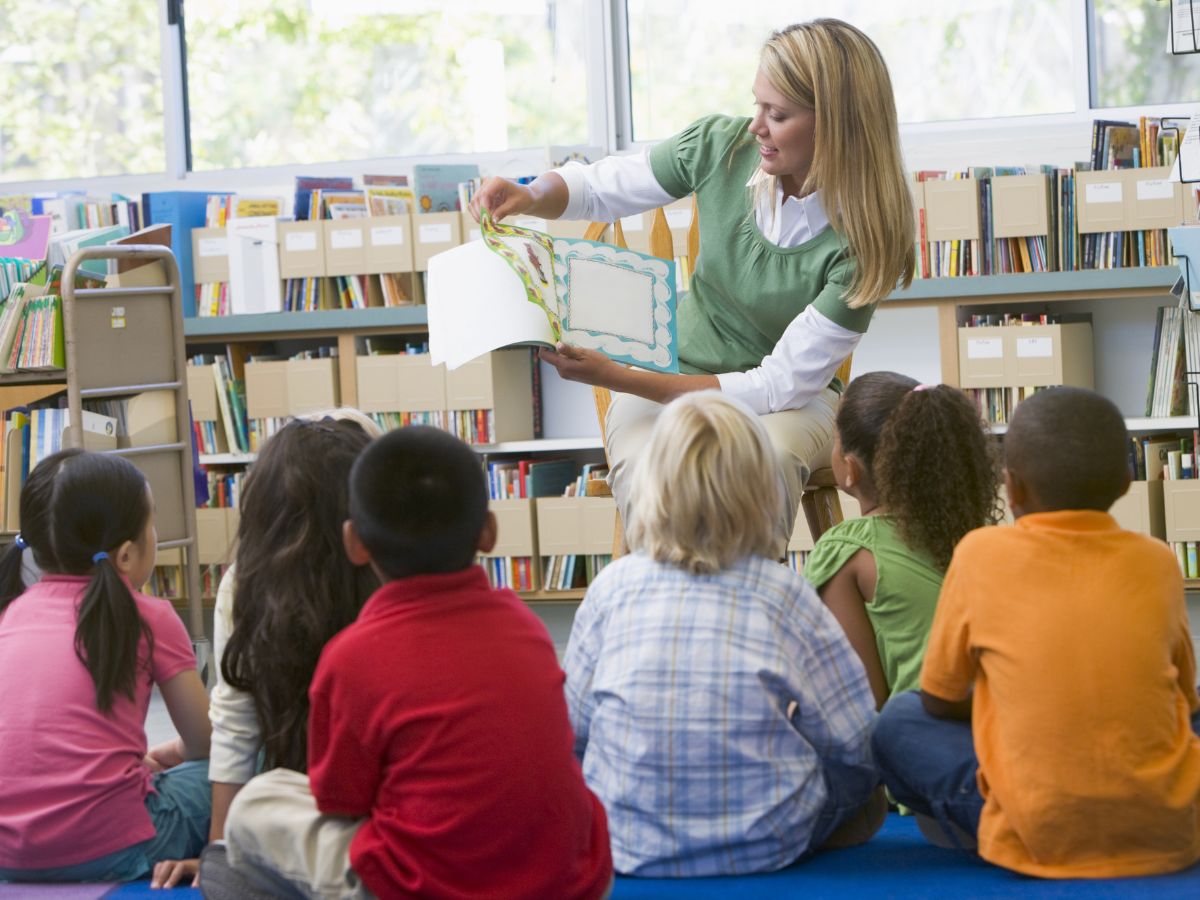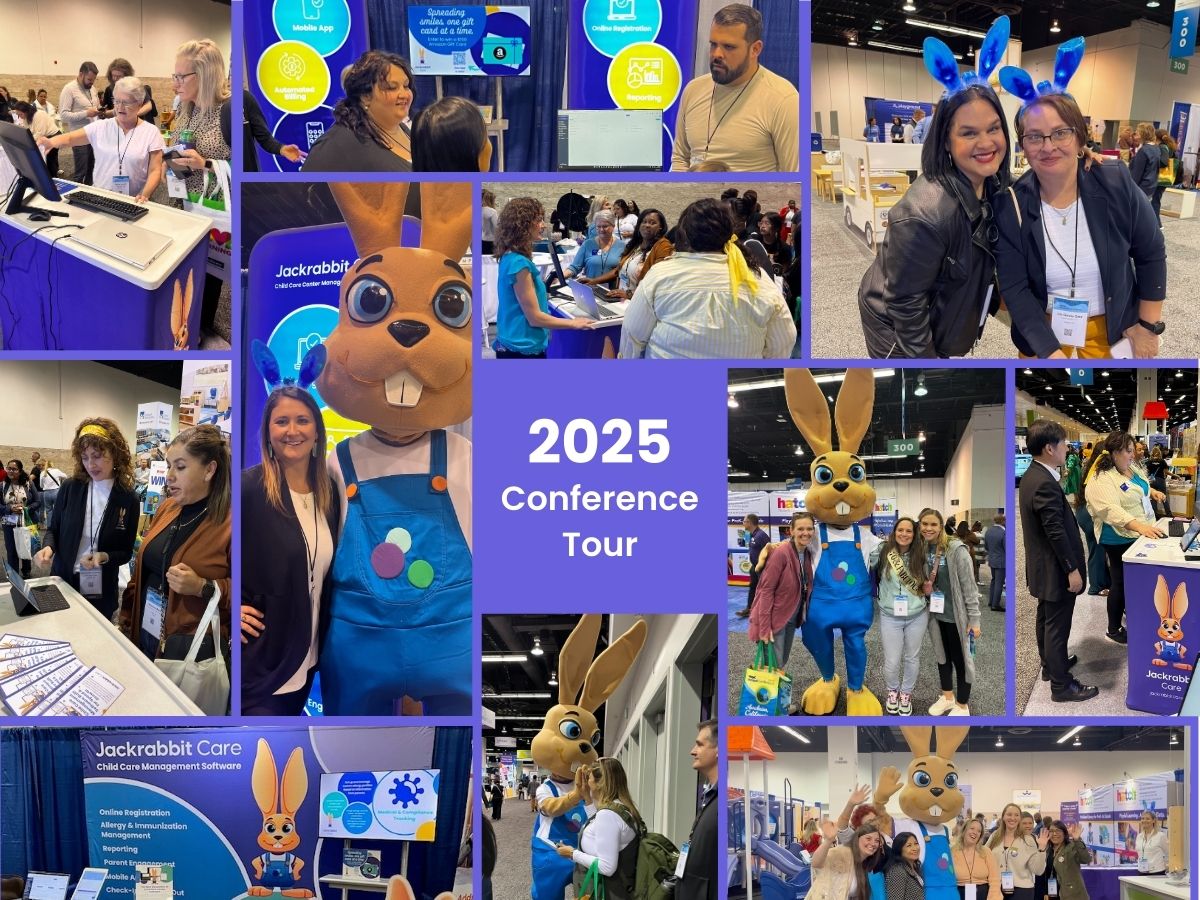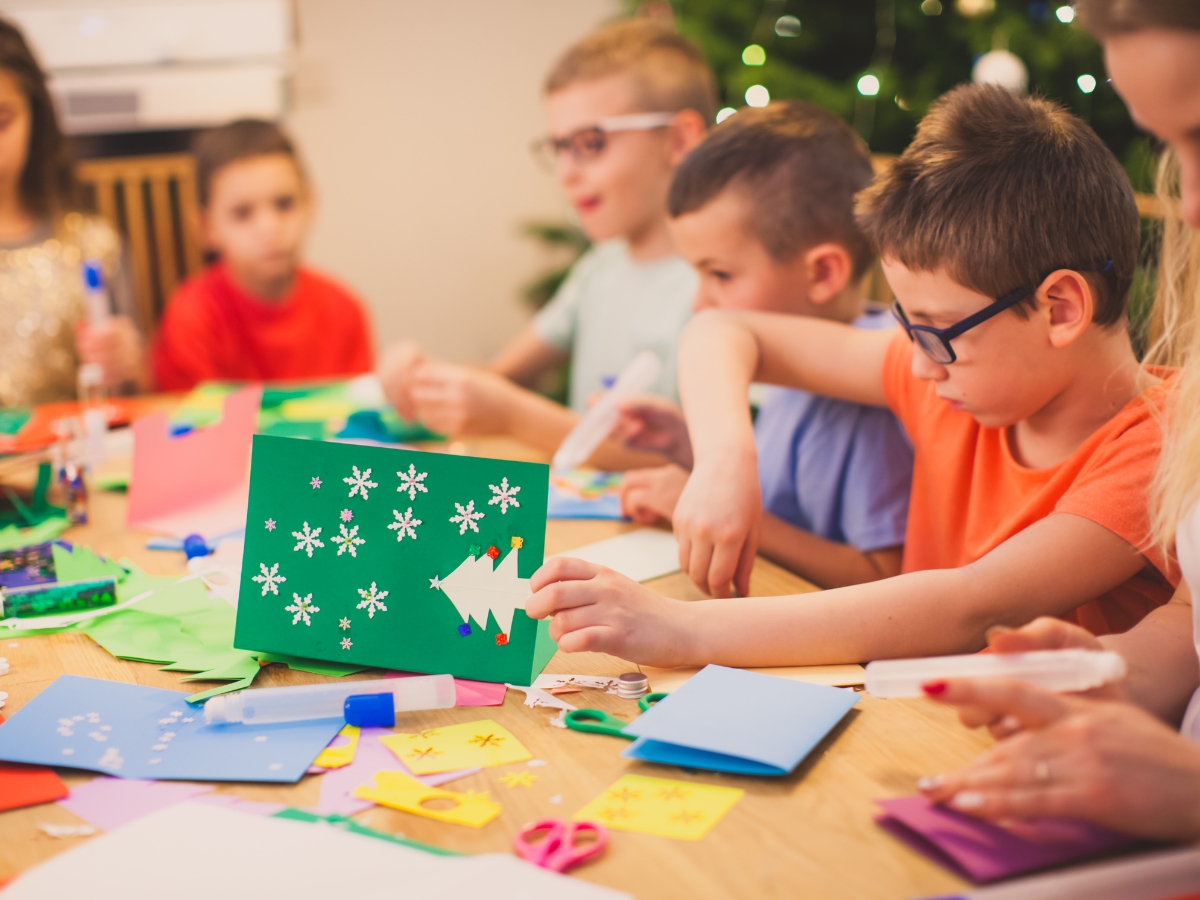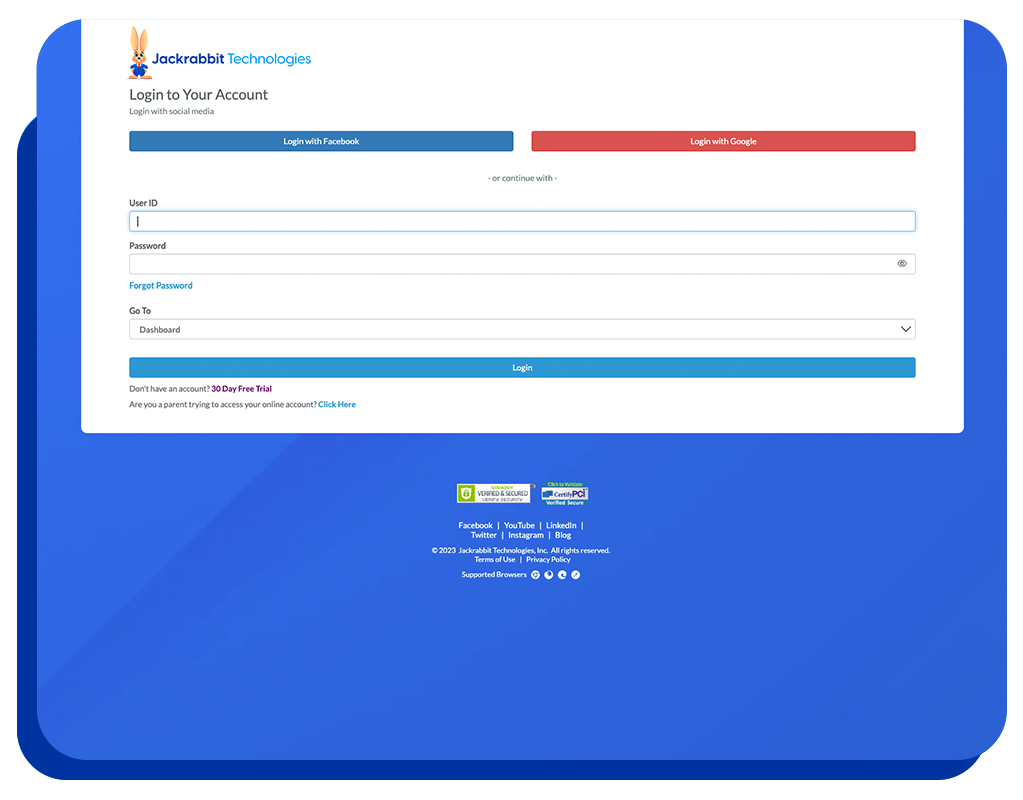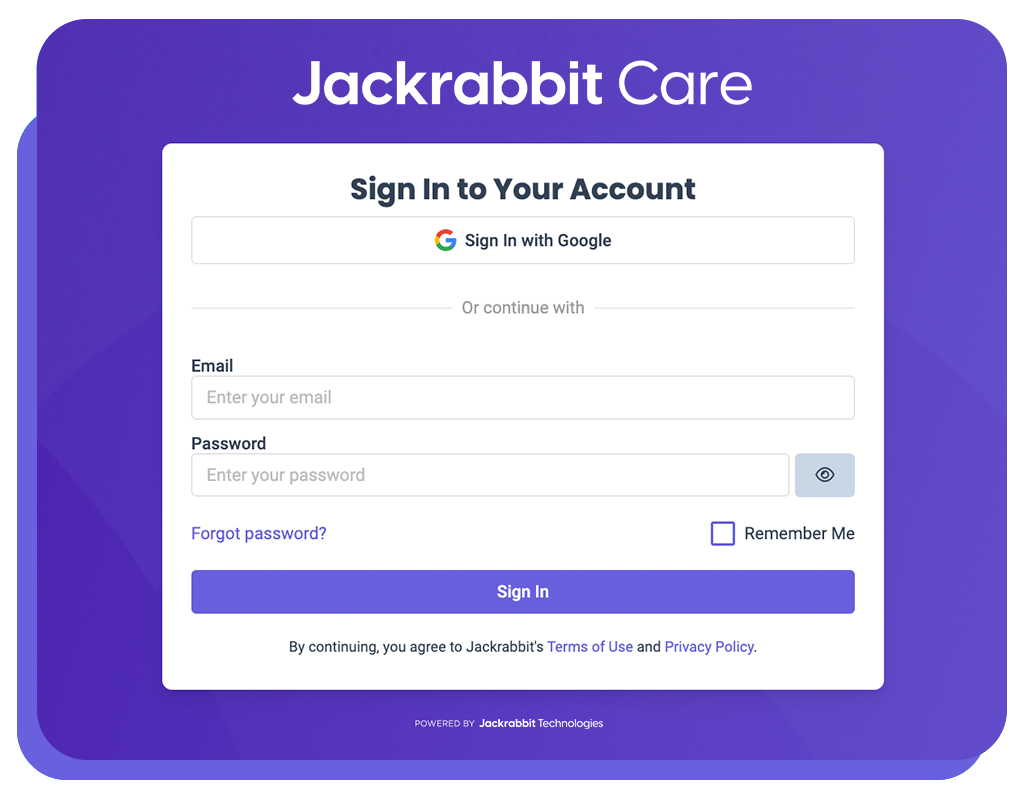“Play is the answer to how anything comes about.”
Jean Piaget.
The great Swiss psychologist is considered to be the pioneer in the understanding of children’s cognitive development. As the father of child psychology, he studied excessively how children develop, learn and grow.
Piaget was adamant that educational activities for early learning are paramount and should not be discarded as insignificant play. Children learn by playing, and this is why child care activities are more than just for fun.
In fact, in order to accelerate early learning, child care facilities should design activities that promote all four domains in a child’s development: physical, cognitive, social and emotional, and language development.
1. Physical Development
Physical development refers to the ability of children to use and control their bodies and refine their motor skills while using their brains, muscles, and senses to do so. Motor skills are defined as gross or fine.
Gross Motor Skills
What are they
Gross motor skills require using the large muscles in the arms, legs, and torso. Children need to develop their motor skills as they are essential in everyday physical activities like walking, running, kicking, throwing, and lifting.
Educational Activities To Promote Gross Motor Skills
Child care centers can help little children refine and master their gross motor skills through a variety of targeted activities during playtime. For example, an obstacle course will help children navigate their way while skillfully coordinating their eyes, brains, and movements. Enthusiastic children will laugh during limbo games while putting their legs and torso muscles to the test. Playtime is the best way to accelerate early learning, especially when it comes to developing gross motor skills. Even simple games like hide and seek, tag, kick the can, and capture the flag, will do wonders for your little ones’ physical development.
Fine Motor Skills
What Are They?
Fine motor skills refer to the coordination between children’s small muscles with their eyes. Such small muscles are found in our hands, wrists, and fingers. These muscles enable us to perform daily functions such as writing, grasping small objects, using the fork and knife while eating, tying our shoelaces, and fastening our clothes. Therefore, the development of fine motor skills is crucial, and early daycare centers play a pivotal role in helping little hands acquire the dexterity needed.
Educational Activities To Promote Fine Motor Skills
Children love to get dirty and splash their little fingers in paint. Finger painting is a popular activity, albeit a bit messy. However, what looks like a messy game and a nuisance for an activity is a brilliant educational opportunity for early learning and fine motor skills development. As children dip their fingers in paint and then use them on paper, they explore their artistic curiosity and learn to coordinate their eyes and hands. Similar drawing and arts and crafts activities are also a great way to help children have fun while learning to develop their fine motor skills while having fun.
2. Cognitive Development
Cognitive development refers to how children think, explore and become problem-solvers while they figure things out. According to Piaget, cognitive development passes through four distinct stages.
Sensorimotor Stage
The sensorimotor stage lasts from birth till approximately age 2. During this initial phase of cognitive development, children explore the world and learn more about their environment by utilizing their senses and motor movements. Children discover the world around them by looking, sucking, grasping, crawling, touching, smelling, and listening. As children use their senses to interact with their environment, they go through an impressive amount of cognitive growth in just two years.
Preoperational Stage
The preoperational stage begins around age two and lasts until approximately age seven. During this cognitive development stage, children begin to form symbolic thinking but are not yet using cognitive operations. For example, they cannot use logic to combine, transform and separate ideas. In addition, they are typically egocentric and cannot view a situation from another’s point of view. At the early stages of the preoperational phase, children engage in parallel play (playing next to each other but not with one another), and they gradually progress to symbolic play (where objects are used to represent something else, or where the children themselves take on the role of superheroes, mothers, doctors, etc.).
Concrete Operational Stage
The concrete operational stage begins around age seven and lasts until approximately eleven. During this stage, children develop organized and rational thinking. It is a significant turning point in children’s cognitive development as they are now mature enough to use logical thoughts, rules, and operations.
Formal Operational Stage
The formal operational stage begins approximately age twelve and lasts into adulthood. As adolescents enter this stage, they can think abstractly and formulate a hypothesis. They can now easily manipulate ideas in their head without any dependence on concrete representation. For example, they can do mental mathematical calculations, use abstract reasoning, and predict the outcome of a particular set of actions.
Educational Activities To Accelerate Early Learning and Cognitive Development
Early childhood daycare centers play a pivotal role in their young students’ cognitive development. Several activities are carried out consistently, which helps foster children’s ability to think and master early mathematical and language concepts. Puzzles, sorting and sequencing games, board games, counting, storytelling and show-and-tell help children to progress through the sensorimotor and preoperational stages.
3. Social And Emotional Development Stage
Children begin to learn about feelings during the social and emotional development stage. They learn to manage their emotions as they figure out how to establish positive and rewarding relationships with others. The core features of emotional development begin at an early age, typically when first begin to attend daycare. As children first begin to interact with others beyond their immediate family members, the daycare environment becomes an ideal place for helping them grow socially and emotionally.
Educational Activities To Accelerate Early Learning and Social And Emotional Development
The mere fact that they leave the comfort zone of their home and enter the daycare environment where they have to interact with several other children socially is enough to encourage social development.
However, little minds need help understanding the emotions of others and learning how to regulate their own emotions and react appropriately. In order for a child to transcend the egotistical stage and understand that others have a different set of thoughts and emotions, the daycare facility can plan several activities.
Playing a game of mirror faces where kids make different faces in the mirror to show different emotions is an excellent way to help them understand varying emotions such as happiness, joy, fear, etc. Games where children are asked to follow the leader, wait their turn, work together to achieve a goal, draw and act out emotions help with social and emotional development.
4. Language Development Stage
Language development is the process by which children come to understand and communicate language during early childhood. This involves language aspects such as phonology, pragmatics, semantics, and syntax. Therefore, early language development is paramount, and research shows that children in daycare centers should have a vocabulary of about 5000 words by the time they are ready for school.
Educational Activities To Accelerate Early Language Development
The daily programs of daycare facilities offer ample opportunities for children to develop their language skills and to master new words each day. Singing songs, reading stories, describing pictures, reciting, and writing the alphabet are common activities in any daycare center. Moreover, circle time, where children share their weekend news, play word games, and listen to jokes and riddles, is a great way to boost childrens’ receptive and expressive vocabulary alike.
Final Words
Daycare centers are not just a baby parking spot where parents drop off their children and pick them up after a day’s work.
On the contrary, child care centers and preschool teachers are crucial in helping children achieve physical, cognitive, social, emotional, and developmental milestones.
Through carefully crafted activities, preschool can accelerate early learning and prepare children to transition to first grade smoothly.


